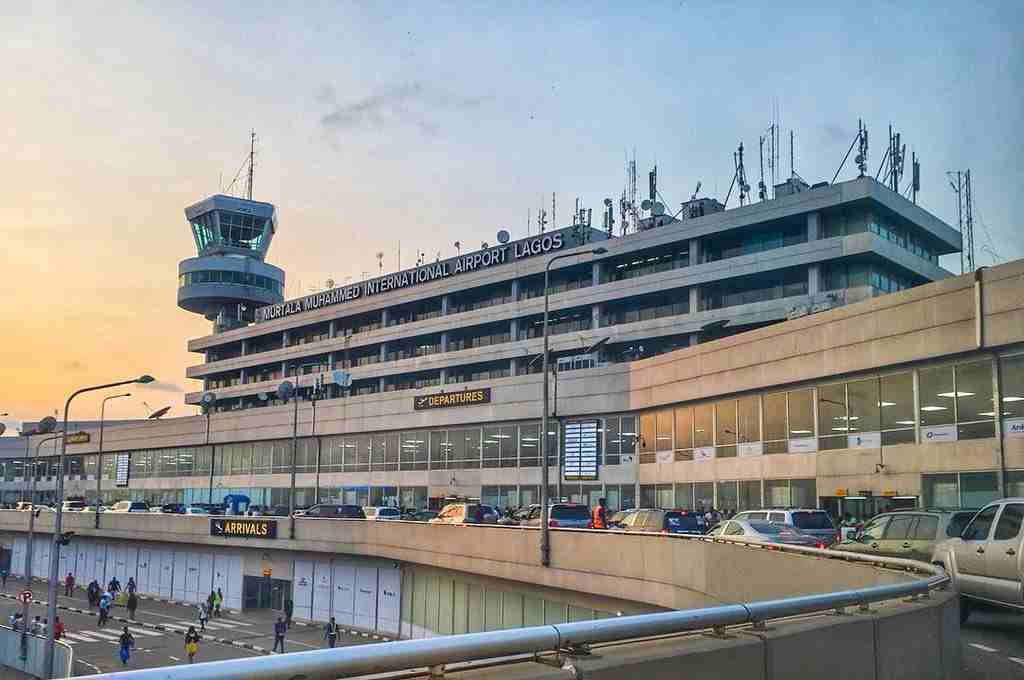Nigerian aviation employees staged a two-day strike on Monday, protesting against working conditions and wages. This action is likely to compound existing problems in a sector already grappling with jet fuel shortages and foreign currency scarcity, which have led to the grounding of flights and difficulties in repatriating revenue from international carriers. The strike was centered on the domestic terminal of Lagos airport, the country’s main commercial hub, where workers chanted and blocked roads leading to the terminal, causing traffic jams and forcing some passengers to complete their journey on foot. However, international flights were not affected.
Representatives from several unions, including pilots, engineers, control tower operators, and other airport workers, cited unpaid wages and the failure of the government to implement a minimum wage for the industry as the main reasons for the strike. They also expressed concern about plans to demolish the Lagos offices of some aviation agencies to allow the expansion of the airport. Abdulrasaq Saidu, the secretary-general of the Association of Nigerian Aviation Professionals, called for an end to “the bondage of this imperialist aviation management” that he said has plagued the industry for years.
The striking workers warned that they would stage an indefinite strike later this month if their grievances were not addressed. In Abuja, the federal capital, workers blocked the main toll road to the airport, forcing passengers to leave their vehicles and travel on motorbikes to access the terminal buildings. However, the workers later dispersed, and traffic resumed its usual flow. Meanwhile, in Kano state, flights operated as scheduled, although aviation workers staged a picket at the airport.
The aviation sector in Nigeria has long been beset by a range of problems, including inadequate infrastructure, outdated equipment, and safety concerns. The government has made several attempts to revitalize the industry, including the establishment of a national carrier, but progress has been slow. The sector has also been hit hard by the COVID-19 pandemic, with airlines experiencing a sharp decline in revenue as international and domestic travel restrictions have been imposed to curb the spread of the virus.
The strike comes at a time when the aviation industry in Nigeria is facing several challenges, including the shortage of jet fuel, which has led to the grounding of several local flights. International carriers have also faced difficulties in repatriating revenue from ticket sales due to a shortage of foreign currency. In addition, the sector has been hit by a shortage of skilled personnel, with many experienced pilots and engineers leaving the country to seek better opportunities abroad.
The aviation ministry has yet to comment on the strike, but the management of Lagos and Abuja airports advised passengers to allow extra time to travel to the airport. The strike has disrupted the travel plans of thousands of passengers and is likely to have a significant impact on the sector, which has been struggling to recover from the effects of the pandemic. The government and the aviation industry will need to address the concerns of the workers to avoid further disruptions and ensure the sustainability of the sector.
How big is the aviation industry in Nigeria ?
The aviation industry in Nigeria is a vital sector of the country’s economy, accounting for a significant share of its Gross Domestic Product (GDP). Nigeria is home to several international and domestic airlines, with air travel being a popular mode of transport for both business and leisure purposes. The sector provides employment opportunities to thousands of people, including pilots, engineers, cabin crew, and ground staff. In addition to facilitating travel and tourism, the aviation industry plays a crucial role in supporting trade and commerce, enabling the movement of goods and services within and outside the country. Despite facing several challenges, the industry has the potential for significant growth and development in the future.

Image Credit: Lagos Airport/twitter




